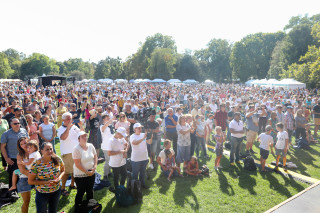
In addition to the traditional groups of the poor and excluded, the Church must be attentive to marginalised groups that are in this status as a negative social impact of globalisation. The charity service of the Church must be inclusive. In addition to people living in extreme poverty, people with serious illnesses or struggling with crises, people with disabilities, the homeless, disadvantaged minorities, addicts and their families, refugees, disaster victims, it is children and adults having suffered injustice and violence, victims of trafficking and abduction, missing persons, people affected by epidemics, victims of sexual exploitation, people disadvantaged by differences and disabilities, and people excluded for whatever reason, who are among the most vulnerable, endangered and needy groups. Pope Francis also frequently uses the term periphery to refer to less visible forms of injustice, poverty and marginalisation, to places of encounter with the poor and to the essence of the evangelical mission.
Within the framework of the Church, the state social care system includes basic social care, specialised care, developmental employment, basic child welfare and specialised child protection care, as well as the maintenance and operation of a health care institution.
In addition to the social policy care system, a number of social programmes are implemented by church actors: home and hospital visits, meals, day care and housing for the homeless, financial and psychological crisis support for families in need, social administration, projects to promote self-care and long-term integration of disadvantaged families and communities. Pastoral care in prisons, out-of-home care for the disabled, pastoral care for Roma people are all areas where the implementation of Christian values is a priority.
The communities providing the charity service of the Church are well prepared and equipped to respond to disasters, to assist in relief, emergency relief and reconstruction. They are also involved in crisis response, integration and psycho-social care for refugees.
Caritas Hungary, the Catholic Charity Service, the Hungarian Charity Service of the Order of Malta and the monastic orders in Hungary are key actors in the social activities of the Hungarian Catholic Church.
The Csak Egyet Szolgálat (Only One Service) is a social assistance centre, daytime warming room and charity organisation operating in the heart of Budapest, in the 6th district. The organisation stands in solidarity with people experiencing homelessness, people in need and families seeking help. Their mission is to provide the most personalised assistance possible through the transmission of faith and the tools of social work.
The regular Catholic Social Days (KATTÁRS) present the social work of the Hungarian Catholic Church to a wider public. The promoter and communicator of the Catholic Church's social teaching in Hungary is the Caritas in Veritate Commission of the Hungarian Catholic Bishops' Conference, headed by the Bishop of Szombathely, János Székely. Among other activities, the committee is the main organiser of the regular KATTÁRS – Catholic Social Days.